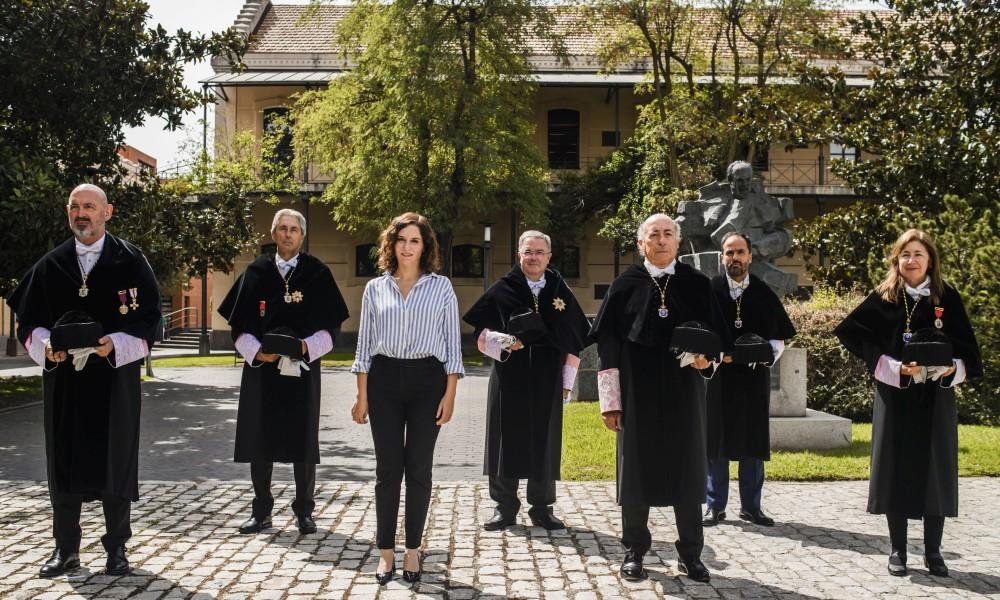The UC3M holds the opening ceremony for the new academic year for the universities of Madrid
9/8/21
The Universidad Carlos III de Madrid (UC3M) held the opening ceremony for the 2021/22 academic year for the universities of Madrid at its Getafe campus. The UC3M’s President, Juan Romo, and the President of the Community of Madrid (CM), Isabel Díaz Ayuso, presided over the event.

Other political and academic figures also attended the event, such as the Minister of Education, Universities, and Science and the Spokesperson of the CM, Enrique Ossorio; managing directors and vice-ministers of the CM; the President of the UC3M’s Social Council, Matías Rodríguez Inciarte; and the UC3M’s General Secretariat, Marcos Vaquer, who read out a summary of the UC3M’s 2020/2021academic year report. In addition to this, more than a dozen presidents from public and private universities in the Community of Madrid attended the event.
The opening speeches were given by lecturers Antonio Cabrales and Montserrat Iglesias, from the UC3M’s Departments of Economics and Humanities: Philosophy, Language and Literature, respectively. In his speech, Antonio Cabrales highlighted the important role the university played in the resolution of the Covid crisis. “Several of the vaccines were developed by university lecturers, largely funded by public funds, epidemiological models were researched that allowed us to optimise virus containment strategies, and the impact the crisis has had on the economy, ecology, and mental health has been studied in depth,” for example. “This experience proves that the university can, and should, make contributing to the resolution of many other challenges, that we may face in the future, a priority,” he added. He later referred to the academic contributions made to address climate change within the economic field.
Montserrat Iglesias highlighted the role played by the university in making the necessary and indispensable encounter between scientific-technological knowledge and humanistic knowledge possible, in other words, the meeting point between the sciences and humanities. “Critical humanistic analysis and the incorporation of an ethical criterion in the approach to scientific and technological development are essential, while we must pay attention to and consider the ways in which artistic and cultural thought and creation respond to this development,” she noted. This joint dialogue will allow us to place humans at the centre of the scientific and technological revolution, according to Iglesias. “Protecting, respecting, and caring for people must be the parameters that establishes the framework for scientific and technological development, similar to the obligation that we, as humans, have to care for and protect the planet and other beings that inhabit it”.
In his speech, President Juan Romo noted that one of the university’s roles is “uniting knowledge and the future”. “Knowledge is generated and transferred at the university, through education,” he said, “it is a privileged space of knowledge, creativity, critical sense, and freedom”. The President placed value on the quality of Madrid’s university system, mentioning various international rankings that support their academic excellence, as well as their international and European calling.
In her speech, Isabel Díaz Ayuso referred to the role the university has played in preserving “the ancient heritage of science, art and culture, as they are the ground that we stand on and the roots that feed us”. She also highlighted the strengths of the Madrid university system and the enormous pride “of being among the best for higher education, with four of our public universities taking part in international alliances promoted by the European Union”.